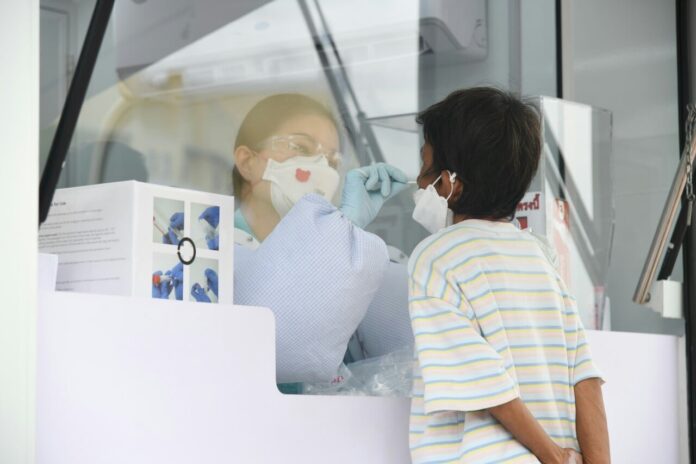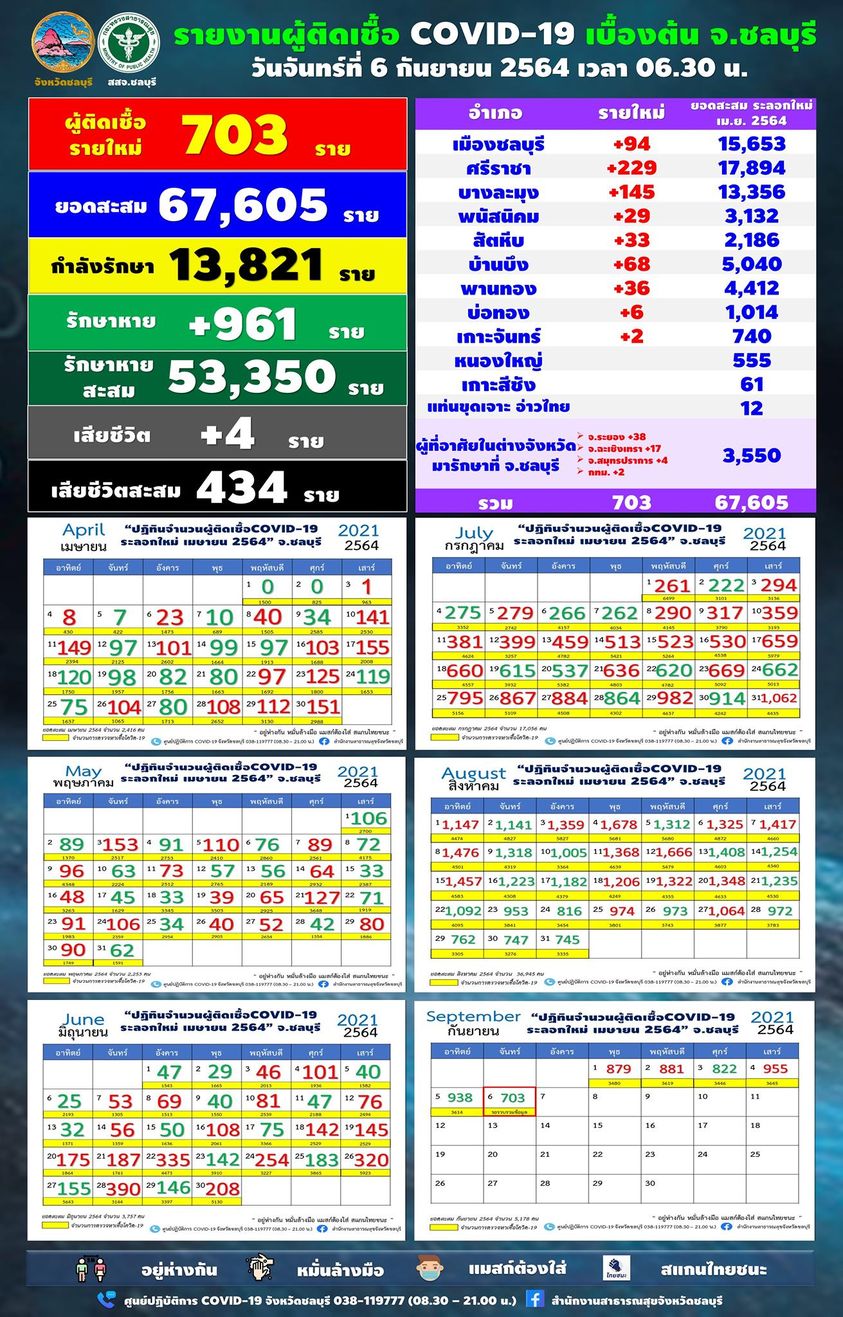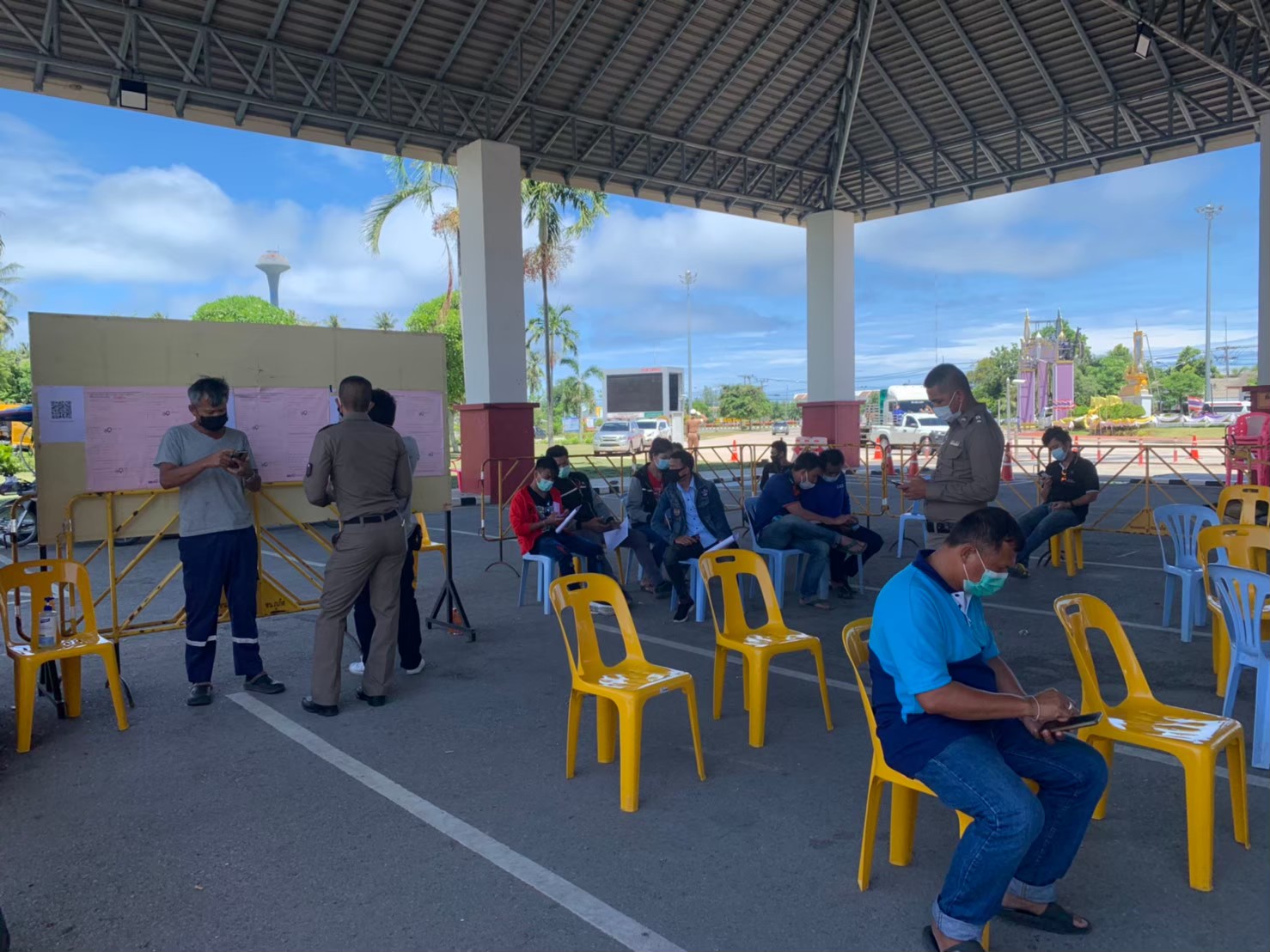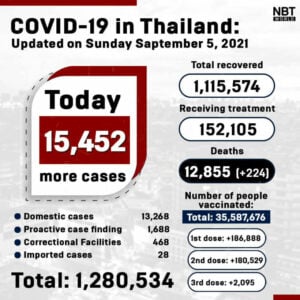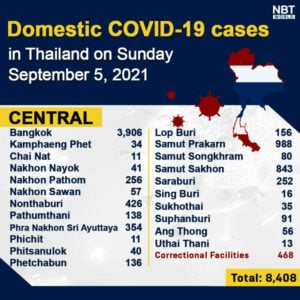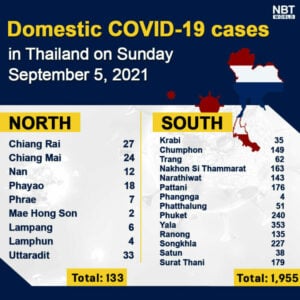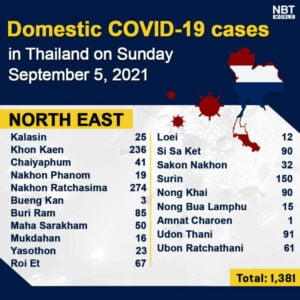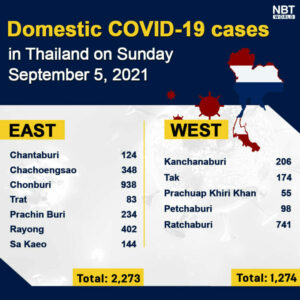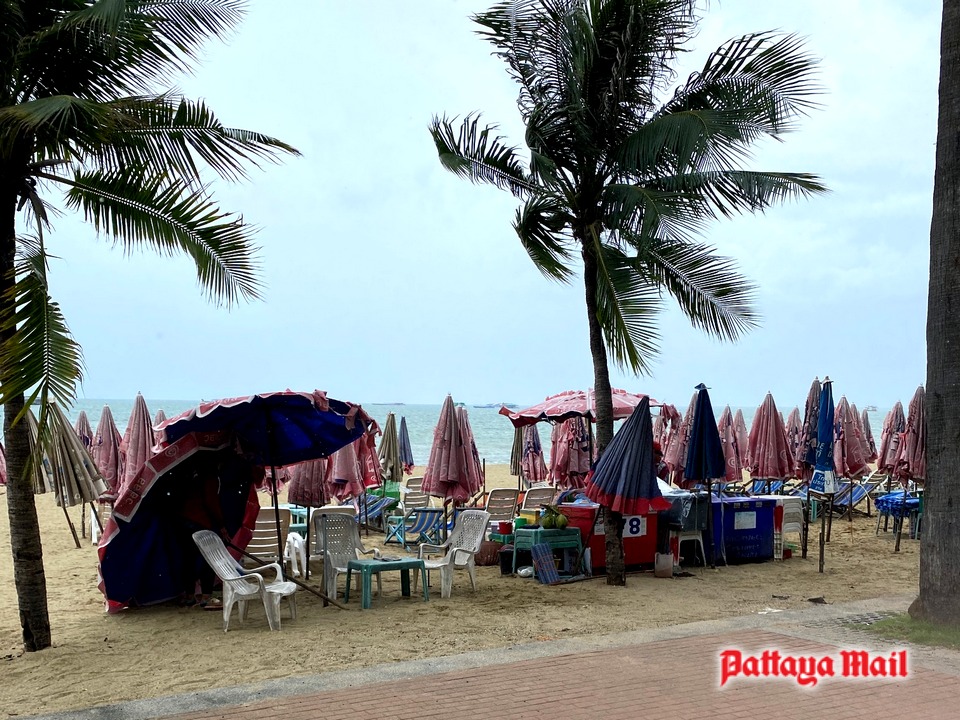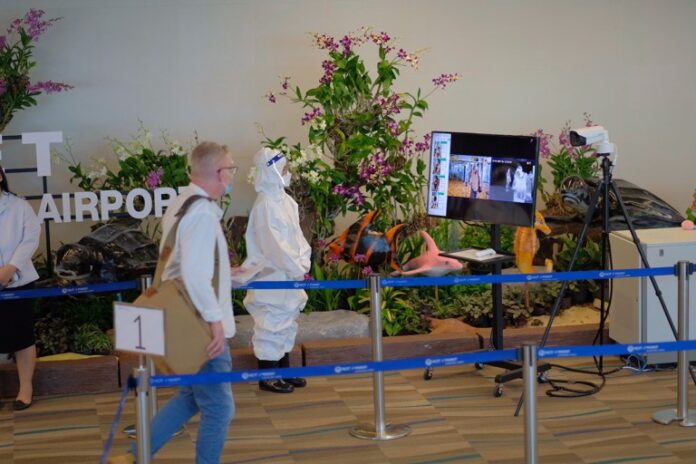Figures from Phuket show an average spend of ฿57,949 for each visitor but nearly 50% of this went on certified accommodation and medical bills. The limited success of the Phuket Sandbox scheme, which is hardly likely to be bettered elsewhere in Thailand, means that the government's prospects for achieving visitor numbers in heavy volumes in 2021 and 2022 are limited as long as the restrictive Certificate of Entry system and an increasingly disturbing top-down approach to controlling the foreign tourism industry is not lifted.
As Pattaya announces details this week of its planned reopening in October following in the footsteps of Phuket's Sandbox scheme, it is becoming clear that a new command and control regime is being put in place for the foreign tourism sector, which according to the Minister of Tourism and Sports Phiphat Ratchakitprakarn, will be in place for some time to come. In Pattaya's case, this may include plans to segregate local and foreign tourists for tourist attractions as revealed by the mayor of the resort city last week. Based on figures just released for the Phuket Sandbox, the kingdom is unlikely to generate anything more than 1.4% of foreign tourist numbers seen in 2019 even if it fully reopens as planned in October. It will also see nearly 50% of the spend from each tourist going on certified accommodation and medical bills in a new, increasingly government-controlled foreign tourism industry. A Phuket guest house, that this weekend, found itself locked out of the Phuket Sandbox scheme without notice and told to tell its guests to leave, highlights the extended and disturbing level of official control over what used to be a private business sector using the Certificate of Entry regime as a control point to force foreign tourists to only use state-certified businesses in Thailand.
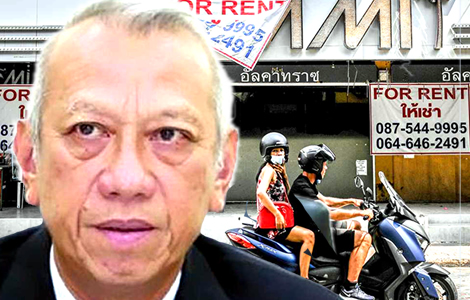
The Mayor of Pattaya, this week, has suggested that foreign tourists to the resort which was, before 2020, voted by Mastercard users as among the top tourist destinations in Asia, will be separated from local visitors when the city goes ahead with its reopening in October.
With a wipeout of the foreign tourism industry and successive and worsening waves of infection from Covid, the colourful and at times outrageous Pattaya, which developed from a seaside village in the 1960s due to western tourists and American GIs, has today been reduced to a ghost town.
Gradual and marked deterioration in the state of Pattaya, once a thriving holiday resort, regular visitor warns foreign tourists to stay away – 'It's depressing'
A regular visitor to the city this week warned foreign tourists to stay away saying that he had witnessed a marked and gradual deterioration in the situation in Pattaya at various stages even from the start of this year.
'I went to Pattaya a few times this year. January, March, April, June, it's got gradually worse. By now it must be even far worse. It's a ghost town. Even shops like Seven-Eleven or McDonald's are closed. Homeless people all around Beach Road. It's really sad to see. If you have been there before Covid, don't go there now. You can't imagine how much it has changed. It's depressing,' he said.
Pattaya Move On (PMO) still looks very uncertain but is more restrictive than the Phuket Sandbox scheme
Under the details of the Pattaya Move On (PMO) scheme, announced this week, the city plans to reopen even though its famous nightlife industry is shuttered and tourist leaders in the city have already been told that the restrictive 'sealed routes' plan including three days in Alternative Local Quarantine (ATQ) is something many foreign tourists will have little interest in.
It comes as one French tourist representative in Asia has said that he is no longer monitoring developments in Thailand being orchestrated by the Tourism Authority of Thailand as the schemes are simply too complicated and uncertain.
He said there had been a modicum of interest in the Phuket Sandbox scheme because Phuket is an island and had been a highly rated destination.
Figures for Thai tourism in 2021 are bound to be disappointing under the 'new normal' controls
On a more positive note for Thai authorities is evidence from opinion polls suggesting that up to 13% of regular foreign tourists to Thailand may engage with the reopening schemes nationwide which would see the country exceeding its now limited foreign tourism arrival goals in a 'new normal' for the industry.
Only 13% will visit Thailand under the kingdom's demanding entry process with 2021 economic growth at stake
However, the actual results from the Phuket Sandbox scheme, which shows visitors at a small fraction of 2019 levels, means that the kingdom may only generate 150,000 to 300,000 visitors in 2021 even if all schemes go ahead nationwide.
This would still be less than 1% of 2019's figures.
Russian travel agents have already told Pattaya tourist leaders that they have more attractive alternatives
Thanet Supornsahasrungsi, who is acting President of the Chonburi Tourism Council, admitted, this week, in an interview with the Bangkok Post newspaper that representatives of the Russian travel industry have suggested that the city's reopening will be a difficult sales pitch to carry among potential Russian tourists as the prospective northern visitors, already have alternatives with far fewer restrictions such as the Maldives, Egypt and Venezuela.
These tourist destinations already offer easy access to Russian tourists looking for sun and relaxation this year. This also applies to European and American tourists.
Last week, Santi Sawangcharoen, who is Tourism Authority of Thailand's Director in New York, made a similar point saying that as well as the Maldives, the Caribbean was an emerging destination choice for American tourists this year with marginal or no restrictions in the case of US territories in the area such as the US Virgin Islands where other than common-sense precautions such as a mask, US travellers can travel and holiday freely without red tape.
Pattaya already accepts that 2021 will not be a year for foreign tourism as it counts on business trade
Mr Thanet appeared to accept this and suggested that Pattaya will be relying more this year on long-stay visitors and local businesspeople from Bangkok and the adjacent Eastern Economic Corridor including Chonburi, Rayong and Chachoengsao to achieve a target of something like 20 to 30% of tourist revenue seen in 2019 before the pandemic.
He said that only 20% to 30% of visitors to Pattaya are expected to be tourists and most of these will be local.
'I think getting started is better than doing nothing,' Mr Thanet said this week, suggesting that the Pattaya reopening plan was simply to test the water.
Phuket Sandbox is a very limited success with the largest segment of arrivals being returning Thais
Although local business and tourism chiefs are heralding the Phuket Sandbox, its limited success at attracting only 12,000 visitors in August and 14,000 in its opening month, is far off the 10 million visitors a year that Phuket used to achieve.
On an annualised basis, this equates to roughly 1.4% of what the island used to attract.
This is the full extent of success attained by the Phuket Sandbox and as such, it is very limited.
Figures released by the Tourism Authority of Thailand and the local Immigration Bureau in Phuket this weekend show that the largest nationality at 13.45% of the 28,176 visitors achieved by the Phuket Sandbox from July 1st to date have been Thai nationals returning to the country followed closely by those from the United States at 13.21% and the United Kingdom at 12.32%.
Nevertheless, this sort of outcome, if replicated across key tourist hotspots, might see Thailand on course to achieve a little more than the currently projected total of 150,000 visitors this year from foreign tourism up to 300,000 at the higher end.
Difficult to sell Pattaya scheme with more invasive and complicated provisions aired this week
Mr Thanet accepted also that the scheme being proposed for Pattaya will be more difficult to sell to foreign tourists.
This is because the resort city is not an island and is part of the mainland, the restrictions, therefore, have to be more invasive and complicated to protect public health which is still the overriding priority of national and local officials.
'That's why we came up with 'Pattaya Move On'. We are not waiting for the pandemic to come to an end. The private sector deserves the credit for making it happen,' explained Rattanachai Suttidechanai, the Vice Chairman of the Pattaya Business & Tourism Association this week as the plans for the scheme were aired publicly.
Visitors will be constrained for three days within a six-day state quarantine stay with the freedom to move about from Day Seven but under restrictions
Firstly, visitors will have to spend three days in state quarantine at a designated hotel after which they will be required to abide by standard operating procedures which involve 'sealed routes' or restrictions including a requirement that they only engage with Safety and Health Administration (SHA) Plus facilities and approved operators.
The details of the plan are still not clear but it appears that visitors will be expected to stay at an Alternative Local Quarantine (ATQ) facility or state quarantine hotel for a total of six days while from days four to six they will be allowed outside but in accordance with the 'sealed route' provisions.
Some of those responsible for the scheme have hinted that they are considering changing the term 'sealed routes' to something that sounds less restrictive.
COVID-19 testing regime not fully clarified
After day seven and subject to good health, the visitors will have more freedom to move about but will be limited for the duration of their stay to dealing with Safety and Health Administration (SHA) Plus tourist service providers.
The Covid-19 testing regime for the Pattaya scheme has not been fully clarified but it is assumed it will be similar to the Phuket Sandbox regime.
Officials and tourism chiefs have explained that the objective of the scheme's stringent rules is to assure that foreign tourists who take part in it do not come into contact with unvaccinated people or staff in establishments which have not been certified as safe and secure.
'Tourists will have more choices from the seventh day, but the key principle is that the staff who provide services must be fully vaccinated,' Mr Rattanachai said this week.
Pattaya Move On (PMO) hints at a shift to high-quality, family-friendly tourism for Pattaya turning its back on its sleazy past as a world nightlife resort
The new Pattaya Move On (PMO) initiative can be seen also, like the Phuket Sandbox, to be part of the Tourism Authority of Thailand's publicly stated objective to create a new, high-quality form of tourism for Thailand as a result of the COVID-19 pandemic.
This will, of course, be a turn off for many of the resort's former visitors from western countries who came to enjoy the bar and nightlife scene.
The Thai government as well as local authorities and business groups have long made it clear that the holiday resort wants to move away from its former market after becoming known worldwide for sleaze, vice and vibrant nightlife, towards a new form of tourism promoting Pattaya as a family-friendly holiday destination.
There has also been a noticeable voice among business operators in Pattaya during this pandemic, despite the devastation that the city has suffered in the absence of its normal foreign tourists, which insists its priority is to protect the local tourism market at this time.
Mayor of Pattaya explains plans for different time slots for local and foreign tourists at key attractions
Back in Pattaya, the mayor, Sontaya Kunplome, has confirmed that the city's officials and the Tourism Authority of Thailand were in the process of designating different time slots for key tourist attractions which can be accessed by foreign tourists and local tourists at different times in an effort to keep both groups apart.
'The sealed route programmes for foreign visitors are arranged separately and tourists from different groups will not mingle. The tour programmes are mainly natural attractions because curbs on entertainment businesses have not been eased yet,' he outlined.
Pattaya to have 70% of the population vaccinated in October says public health chief, now 40%
Currently, Pattaya has a vaccination rate of 40% of the population which will have to be brought up to 70% by October.
Over the weekend, Dr Suwannachai Wattanayingcharoenchai of the Ministry of Public Health in Pattaya explained that the challenge facing the city is more difficult because of its location.
He confirmed that a target vaccination rate of 70% will be achieved sometime in October but his chief concern was the ability of the health service in the city to be able to cope with any outbreak that may emerge.
Continued outbreak of infection in Phuket with 34 serious cases and 8 deaths confirmed this month
Experience from Phuket has shown that this is highly likely.
It should be noted that Phuket, currently, has a rising outbreak of infection on the island which is rising at 230 to 260 cases per day and over 75% of hospital beds occupied by COVID-19 patients.
The island has seen approximately 316 yellow cases with medium symptoms requiring hospitalisation while 34 cases are red with serious symptoms.
8 people have died in Phuket from COVID-19 over the last month.
Tourism Minister makes it clear that 'new normal' for Thai tourism is here to stay until the COVID-19 emergency is declared over by the cabinet
Speaking last week during the government censure debate in parliament, the Minister of Tourism and Sports, Phiphat Ratchakitprakarn, explained that the reopening will be going ahead in October but underlined that this form of foreign tourism would be a 'new normal' for Thailand during the ongoing emergency.
The government last week made it quite clear that emergency provisions such as the Certificate of Entry system remain in place despite a Thai Examiner reader survey which shows that up to 87% of the market is lost to the kingdom because of this and has been taken up elsewhere by the kingdom's competitors in the world tourism market.
This is however the price that Thailand is willing to pay as it puts public health front left and centre ahead of economics.
It is a policy that is increasingly controversial and being questioned as the economic damage mounts causing long term damage to the kingdom's prospects.
Figures from Phuket on foreign tourist expenditure shows little or no pickings for small business owners, nearly 50% on certified hotels and medical bills
The new normal in Thai tourism can be seen from figures released this week by local authorities on Phuket in relation to the expenditure by tourists in the Phuket Sandbox scheme.
The total spend over two months approximately was ฿1.634 billion which is 2% of that seen for the same period in 2019 on the island when, for the year, ฿500 billion was generated by the once-thriving foreign tourism sector.
It showed an average spend of ฿57,949 for what was, for the most part, a 14 day stay on the island.
14.01% of this or ฿8,118 was spent on medical and doctors fees associated with COVID-19 testing and other services.
A further 34.5% or ฿19,992 was spent on accommodation at Safety and Health Administration (SHA) Plus certified hotels.
This meant that nearly 50% of what was spent by each visitor went on accommodation and medical fees.
23% or ฿13,328 was spent on tourist services on the island while only ฿12,407 or 21.4% went on food and entertainment in Phuket with miscellaneous expenses at ฿4,044 per visitor or 6.98%.
The figures confirm that there is less benefit from this 'new normal' tourism to small and independent entrepreneurs on the island, a point that they have already drawn attention to in addition to the volume of tourists being less than 2% of that seen before the country closed in April 2020.
Public health controls and government management of the industry stifling any prospect of growth
This is the result of a holiday environment with the small bars, entertainment and nightlife industry on the island closed and foreign tourists directed only to certified establishments.
The significance of this 'new normal' in Thai tourism is that the government now exercises more control over the foreign tourism industry than ever before with prospective tourists travelling to Thailand forced to show that they have booked into Safety and Health Administration (SHA) Plus establishments approved and certified by the government.
Disturbing story of Phuket guesthouse locked out overnight from its foreign tourist business, no notice
This situation was highlighted over the weekend when news came from Phuket that a small but highly professional guest house on the island with 25 bedrooms found itself locked out of the programme overnight and was told to send its customers elsewhere as its certification had been revoked without notice.
The owner of the establishment had been filing his returns last Wednesday when he found that he could not access the Phuket Sandbox scheme website with his special SHABA ID which he had earlier been given when his business was approved by authorities at the end of June after applying months earlier.
The owner was told to contact the authorities of the scheme and on Friday was informed that his guest house was no longer part of the Phuket Sandbox.
'We just got the report that you have no hotel license,' the man was told and warned that he could no longer accept bookings from foreign customers as the foreign tourists would not have their Certificate of Entries approved.
Told to tell his guests to leave his premises and move to another, officially certified hotel on the island
He was then told that his existing customers would have to be told to leave.
'Please ask your customers to move to another hotel,' a message received by the aghast businessman stated. He was warned that if he booked any further customers, he would find himself outside the law.
'If you continue to accept customers, you will act against the law,' the message read.
The Phuket business is now facing the real prospect of closure and having to lay off all its staff, many of whom had recently been brought back as the venue was popular with Phuket Sandbox holidaymakers.
Discriminating regime is putting smaller operators out of business and eliminates competition
'They have shut us down completely without warning. We have a guesthouse license for 1 to 25 rooms. Everything is in order and we renewed the license in June. We follow the rules of the letter. Our hygiene routines are probably better than anywhere else in Phuket,' the owner protested in exasperation.
He is one of many small business people in Phuket who have long complained about the discriminating nature of the Phuket Sandbox scheme and Thailand's 'new normal' command and control tourism industry looks eerily similar to models used by closed communist countries in the past when allowing foreign tourists to enter.
Emergency powers approved by the cabinet in March 2020 are the basis for such extraordinary schemes which impinge on the commercial marketplace
This controversial regime, introduced under the pretext of public health and quality control, has effectively locked smaller operators out of the marketplace and denied them their legitimate business rights prior to April 2020.
It also distorts the market and limits the choice of foreign tourists who are already constrained in their options while raising moral questions as to whether such a scheme should, in fact, be supported at all given that the vast majority of marginalised small businesses and entrepreneurs are not receiving compensation.
It is likely to hold sway well into next year or as long as the government continues to impose these increasingly extraordinary measures within the foreign tourism sector under the kingdom's Emergency Decree approved by the cabinet on March 24th 2020 and which became effective on March 26th 2020 to deal with this crisis and which has been routinely extended as the virus threat remains.

